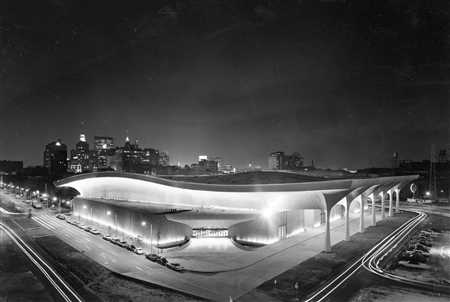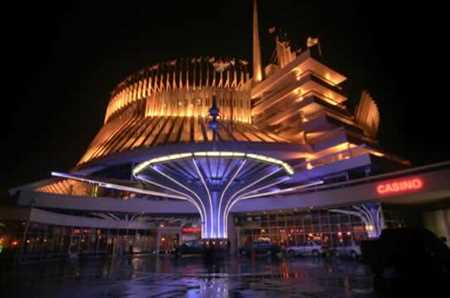

In a city renowned for its vibrant culture and rich history, the developments in the realm of gaming represent a significant shift in the local economy and entertainment landscape. The transition from traditional floating establishments to more conventional venues marks a pivotal moment for those seeking leisure and excitement. This evolution speaks to broader trends in gambling and hospitality, as well as changes in consumer preferences.
Exploring this phenomenon reveals the intricate dynamics at play. The allure of the water, once synonymous with gaming experiences, seems to be yielding ground to fresh concepts that cater to modern tastes. By examining how these changes have unfolded, we gain insights into the future trajectory of the leisure industry in this vibrant locale.
Engaging with the local community and understanding the impacts of such transformations is essential for grasping the complexities surrounding this evolution. As establishments evolve, they not only reflect the preferences of their patrons but also contribute to the cultural tapestry that defines the city. The tale of this transition is not just about business; it is a narrative woven into the very fabric of the region’s identity.
The evolution of floating entertainment venues along the mighty river has shaped the social and economic landscape of the region. These vessels have served multiple purposes over the years, transforming from essential means of transport to thriving hubs of recreation and gaming. Their presence reflects a unique interplay of local culture, historical context, and regulatory developments that have influenced their operations.
The early iterations of these floating establishments date back to the 19th century when steam-powered boats began navigating the waterways. They provided not only transportation but also a platform for leisure activities, attracting travelers and locals alike. As time progressed, the allure of chance and excitement evolved, resulting in the integration of gambling into these maritime ventures.
The concept of mobile gaming establishments has a rich and varied history, deeply intertwined with cultural and legislative shifts. These aquatic venues offered a novel blend of recreation and adventure, drawing patrons not only for the thrill of chance but also for the unique maritime experience they provided. The evolution of these establishments has responded to regulatory frameworks, societal preferences, and technological advancements, shaping their identity within the broader entertainment landscape.
As attitudes toward gambling evolved, floating venues adapted. Initially functioning under leniencies provided by jurisdictions, these establishments often found themselves navigating complex legal waters. Legislative changes permitted operators to create elaborate floating platforms that attracted visitors seeking entertainment, thereby establishing a unique niche within the hospitality industry.
The journey of gambling on waterways has undergone significant changes over the years, reflecting shifts in culture, legislation, and technology. What began as a niche pastime has transformed into a prominent segment of the entertainment industry, illustrating the complex interplay between tradition and modernization.
From its inception, aquatic gaming has been shaped by various historical events:
Early 19th century saw the rise of floating establishments designed for pleasure and chance.
The establishment of laws in some states encouraged the development of these maritime venues.
Technological advancements led to enhanced gaming experiences, attracting a broader audience.
In recent decades, the landscape of water-based gambling has further evolved due to several factors:
Economic shifts prompted some jurisdictions to reconsider their gaming regulations.
Competition from land-based venues has forced aquatic establishments to innovate.
Changes in public perception have influenced legislative actions regarding gambling on waterways.
This dynamic environment continues to shape the future of gaming on the water, demonstrating a complex relationship between tradition and contemporary demands.
The rise and establishment of gaming establishments within urban landscapes can significantly reshape the cultural and tourism dynamics of a region. This transformation often affects local economies, social interactions, and the overall identity of a place, leading to both positive and negative consequences for residents and visitors alike.
In this particular locale, the shift from traditional floating venues to a fixed establishment has led to various cultural adjustments. These changes not only influence the economic landscape but also redefine how tourists perceive and interact with the community. The alteration in the gaming environment can attract a different demographic, subsequently impacting local businesses and cultural events.
Ultimately, the central establishment presents both opportunities and challenges, necessitating a careful balance between promoting economic growth and preserving the unique cultural heritage that attracts tourists in the first place.
In recent years, a significant transformation has taken place within the entertainment landscape of the region. A prominent establishment has emerged, providing a distinctive experience that blends luxury and excitement. This development reflects not only changes in visitor preferences but also shifts in regulatory frameworks that have influenced the gaming industry.
Factors contributing to the success of this establishment include:
Strategic location near vibrant attractions
Comprehensive amenities catering to diverse clientele
Innovative marketing strategies that engage potential visitors
Commitment to customer service excellence
This establishment has also adapted to various economic challenges, responding to fluctuations in tourism and local demographics. By embracing evolving consumer trends and expectations, it has solidified its position as a leading destination in the area.
Support of local community events and initiatives
Partnerships with nearby businesses to enhance visitor experience
Investment in state-of-the-art facilities
Development of unique entertainment options beyond traditional gaming
As a result of these strategies, this establishment has not only thrived but has also become a cultural hub, drawing in visitors from afar. Its evolution highlights the dynamic nature of the entertainment sector and its ability to reinvent itself in response to changing landscapes.

In a city renowned for its vibrant culture and unique heritage, a significant shift has taken place within the gaming landscape. This transformation marks a departure from the longstanding practice of integrating entertainment venues with waterways, reflecting broader trends that prioritize convenience and accessibility. The evolution of this practice has sparked debate among both patrons and operators, as they navigate the implications of such a change.
The allure of gaming experiences on floating platforms has historically captivated visitors, offering a distinctive combination of excitement and scenic views. However, as demands for modern amenities rise and demographics evolve, land-based alternatives have begun reshaping the perceptions and expectations of players. This reimagining signifies a pivotal era for the industry, as establishments seek to adapt to contemporary preferences while honoring the traditions that initially drew patrons to the scenic watersides.
Factors contributing to this shift include increased competition from other forms of entertainment, the desire for a less restrictive gaming environment, and evolving regulations. Many find that traditional setups come with operational constraints that hinder the ability to innovate and enhance the overall guest experience. As a result, some enterprises have chosen to break free from conventional models, paving the way for a new era of gaming that embraces both nostalgia and modernity.
This segment explores the multifaceted consequences that arise from the absence of certain gambling establishments within a city, focusing on both fiscal and community dimensions. The interplay between entertainment options and local economies can reveal significant trends that influence a region’s prosperity and cultural landscape.
Economic Growth: The lack of certain gaming venues can lead to diminished revenue streams for both local governments and businesses.
Employment Opportunities: A void in leisure establishments often results in fewer job openings, affecting the local workforce and increasing unemployment rates.
Tourism Decline: Reduced options for visitors may cause a downturn in tourist numbers, hampering the hospitality sector significantly.
Local Businesses: Establishments that typically benefit from foot traffic generated by gaming facilities may experience reduced patronage, negatively impacting their sales.
Social Dynamics: The redistribution of leisure activities influences community cohesion, potentially leading to changes in social interactions among residents.
Overall, the ramifications of not having specific leisure options extend beyond mere financial implications, shaping the very fabric of community life and economic vitality.
The framework of laws and regulations significantly influences the operational landscape of gaming establishments. In many regions, specific legal stipulations dictate the types of gaming permitted, their locations, and the functionalities of these facilities. Understanding the complexities of these rules is essential for any entity navigating this industry.
In this context, jurisdictions can impose a range of requirements, from licensing procedures to operational standards, which directly affect how businesses can function. These stipulations often necessitate that establishments conform to local laws regarding taxation, safety, and security, as well as adhere to rigorous compliance checks. Such regulations contribute to shaping the strategic decisions made by operators, impacting their offerings and market positioning.
Additionally, public perception and political influences play a critical role in regulatory approaches. The community’s stance on gaming can lead to fluctuations in legislation, which in turn may alter the viability of certain modalities within the sector. Stakeholder engagement and advocacy efforts often become pivotal in influencing regulations that govern these entertainment venues.
Ultimately, navigating the intricate web of legal and regulatory factors is vital for ensuring sustainability and profitability within the gaming industry, compelling businesses to remain agile and responsive to changing environments.